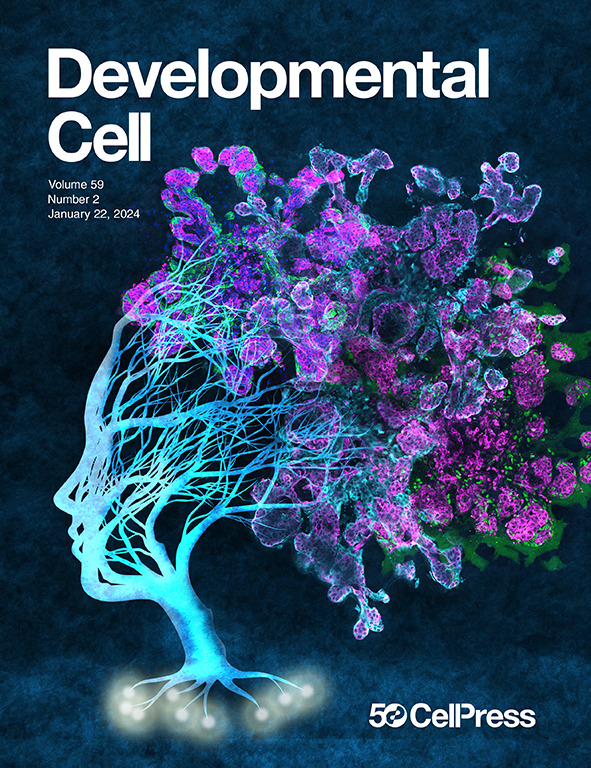一种毒力蛋白激活SERK4并降解RNA聚合酶IV蛋白抑制水稻抗病毒免疫
IF 8.7
1区 生物学
Q1 CELL BIOLOGY
引用次数: 0
摘要
作为全球主要的主食,水稻正受到病毒感染的威胁,这种感染阻碍了其生长和产量。我们最近的研究表明,水稻草矮病毒的毒力蛋白P3通过诱导蛋白酶体控制的水稻RNA聚合酶IV (RNA Pol IV)蛋白NRPD1a的降解来促进发病,NRPD1a是由P3相互作用的E3泛素连接酶P3IP1控制的。然而,潜在的机制仍然难以捉摸。在这项研究中,我们发现P3作为一种病毒编码的转录激活因子样效应物,通过直接结合其启动子来上调体细胞胚胎发生受体激酶4 (SERK4)的转录。SERK4磷酸化P3IP1,并在P3IP1控制的泛素化后增强RNA Pol IVa (NRPD1a)降解,导致水稻抗病毒防御减弱。因此,我们的研究发现了一种关键的病毒毒力策略,该策略通过编码一种转录因子样蛋白来激活宿主激酶,促进蛋白酶体控制的NRPD1a降解,从而解除rna定向DNA甲基化(RdDM)抗病毒防御。本文章由计算机程序翻译,如有差异,请以英文原文为准。

A virulence protein activates SERK4 and degrades RNA polymerase IV protein to suppress rice antiviral immunity
Rice, a major global food staple, is threatened by viral infections that hinder its growth and yield. We have recently shown that the virulence protein P3 of rice grassy stunt virus promotes pathogenesis by inducing proteasome-controlled degradation of the rice RNA polymerase IV (RNA Pol IV) protein NRPD1a controlled by the P3-interacting E3 ubiquitin ligase P3IP1. However, the underlying mechanisms remain elusive. In this study, we show that P3 acts as a virus-encoded transcription activator-like effector to upregulate transcription of somatic embryogenesis receptor kinase 4 (SERK4) by directly binding to its promoter. SERK4 phosphorylates P3IP1 and enhances RNA Pol IVa (NRPD1a) degradation following P3IP1-controlled ubiquitination, leading to attenuated antiviral defense in rice. Thus, our study finds a critical viral virulence strategy by encoding a transcription factor-like protein that activates a host kinase to promote proteasome-controlled degradation of NRPD1a, thereby disarming RNA-directed DNA methylation (RdDM) antiviral defense.
求助全文
通过发布文献求助,成功后即可免费获取论文全文。
去求助
来源期刊

Developmental cell
生物-发育生物学
CiteScore
18.90
自引率
1.70%
发文量
203
审稿时长
3-6 weeks
期刊介绍:
Developmental Cell, established in 2001, is a comprehensive journal that explores a wide range of topics in cell and developmental biology. Our publication encompasses work across various disciplines within biology, with a particular emphasis on investigating the intersections between cell biology, developmental biology, and other related fields. Our primary objective is to present research conducted through a cell biological perspective, addressing the essential mechanisms governing cell function, cellular interactions, and responses to the environment. Moreover, we focus on understanding the collective behavior of cells, culminating in the formation of tissues, organs, and whole organisms, while also investigating the consequences of any malfunctions in these intricate processes.
 求助内容:
求助内容: 应助结果提醒方式:
应助结果提醒方式:


